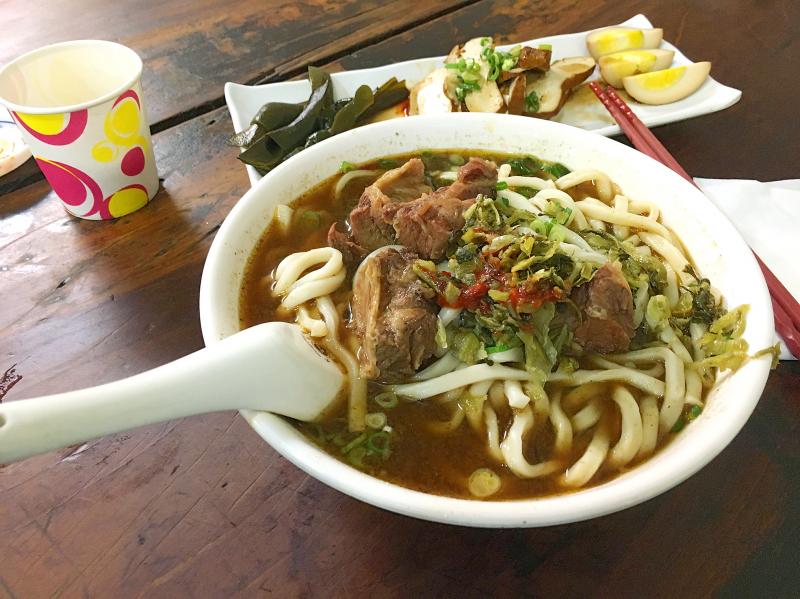A: What did you have for lunch that has made you this tired?
B: Today I had congee. But I usually eat fried rice or noodles.
A: No wonder. Those are all refined starch, they’ll send your blood sugar sky high and make you want to sleep.

Photo: Pixabay 照片:Pixabay
B: Why will refined starch send your blood sugar levels through the roof?
A: Because they’re easily digestible, and they will dump a load of glucose into your blood in one go, like turning the faucet on full.
B: So how do I stop the water gushing out?
A: 你午餐是吃了什麼啊,讓你這麼想睡?
B: 我今天吃的是粥。不過我一般比較常吃炒飯或是麵。
A: 難怪,這些都是精緻澱粉,會讓血糖濃度快速上升,也會讓你想睡覺。
B: 為什麼精緻澱粉會讓血糖快速上升啊?
A: 因為它很好消化分解,一下子釋放出太多葡萄糖到血液裡,就像把水龍頭一下子開很大。
B: 那要怎樣才能把水龍頭關小一點呢?
(Translated by Paul Cooper, Taipei Times / 台北時報林俐凱)
Audio recordings for Speak Up! dialogues will be suspended until further notice due to the pandemic.

A ‘Dutch angle’ is a classic camera technique that has been used in filmmaking since the 1920s, when it was introduced to Hollywood by German Expressionists. Why is it called the Dutch angle if it’s actually German? In fact, it has no __1__ to the Netherlands. The term “Dutch” is widely believed to be a misinterpretation of “Deutsch,” which means German in the German language. In any event, the name stuck, and the Dutch angle remains a popular cinematic tool to this day. This technique involves tilting the camera on its x-axis, skewing the shot to create a sense of

Historians are rethinking the way the Holocaust is being presented in museums as the world marks the 80th anniversary of the liberation of the last Nazi concentration camps this month. Shocking images of the mass killings of Jews were “used massively at the end of World War II to show the violence of the Nazis,” historian Tal Bruttmann, a specialist on the Holocaust, told AFP. But in doing so “we kind of lost sight of the fact that is not normal to show” such graphic scenes of mass murder, of people being humiliated and dehumanized, he said. Up to this

A: After “God of Songs” Jacky Cheung sang for late singer Khalil Fong recently, music streaming service KKBOX also paid tribute to Fong by releasing his greatest hits online. B: The 20th KKBOX Music Awards ceremony is taking place at the K-Arena in Kaohsiung tomorrow. Fong performed at the ceremonies in the past. A: Who are the performers this year? B: The performers include Taiwanese groups 911, Wolf(s), Ozone, Singaporean pop diva Tanya Chua, and K-pop group Super Junior. A: South Korean stars actually took four spots among KKBOX’s 2024 Top 10 singles, showing that K-pop is still

Dos & Don’ts — 想想看,這句話英語該怎麼說? 1. 能做的事都做了。 ˇ All that could be done has been done. χ All that could be done have been done. 註︰all 指事情或抽象概念時當作單數。例如: All is well that ends well. (結果好就是好。) All is over with him. (他已經沒希望了。) That’s all for today. (今天到此為止。) all 指人時應當作複數。例如: All of us are interested in his proposal. All of us are doing our best. 2. 我們這麼做有益於我們的健康。 ˇ What we are doing is good for our health. χ What we are doing are good for our health. 註︰以關係代名詞 what 引導的作為主詞的子句,動詞用單數。如: What he said is true. 3. 大家都沿著步道跑。 ˇ Everybody runs along the trail. χ Everybody run along the trail. 註︰everyone 是指一大群人,但在文法上一般用單數。 4. 桌上有一本筆記本和兩支筆。 ˇ There were two